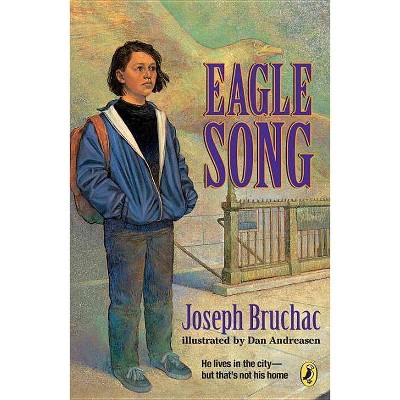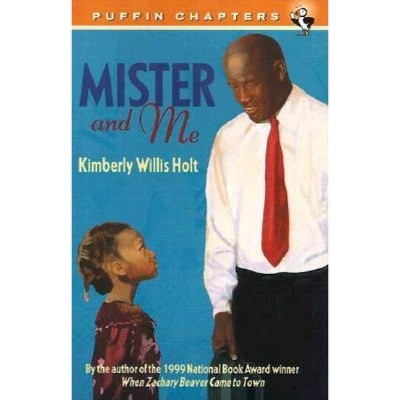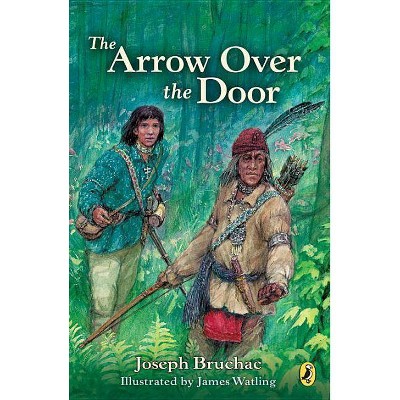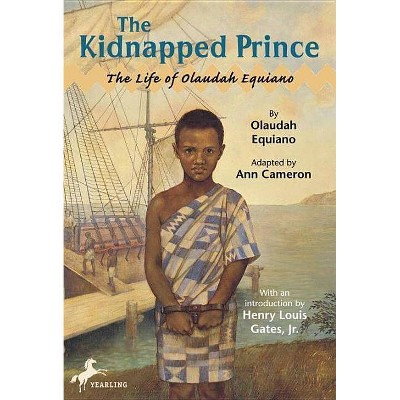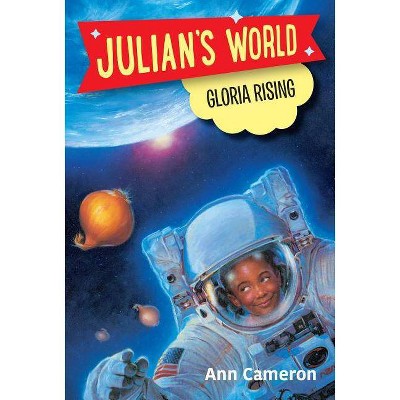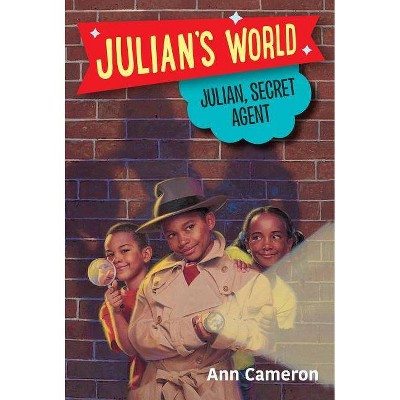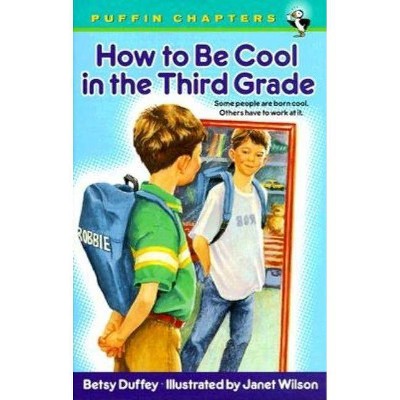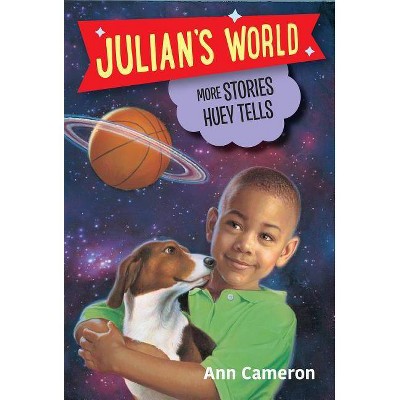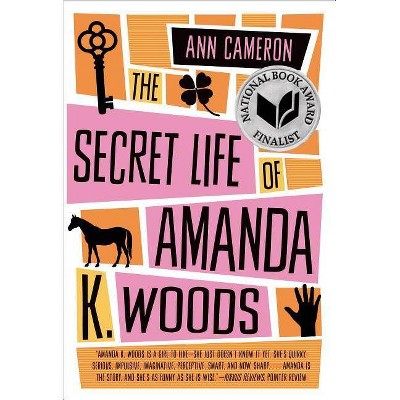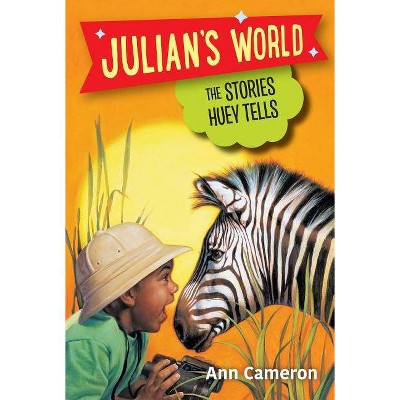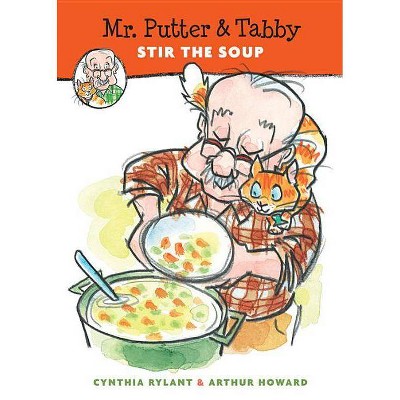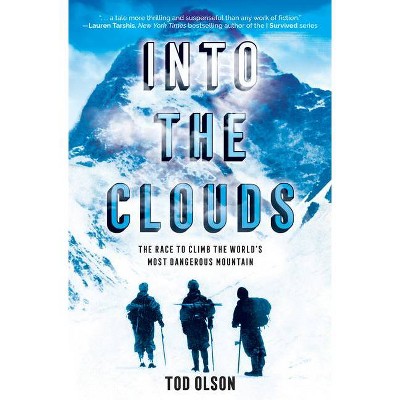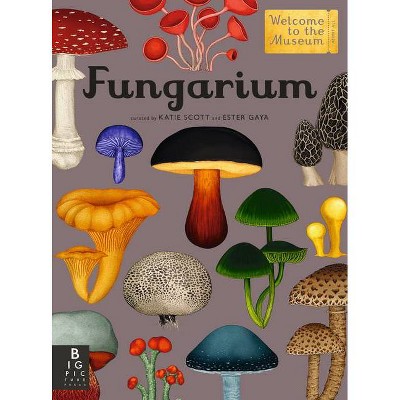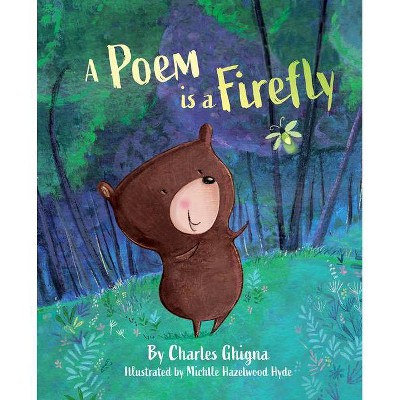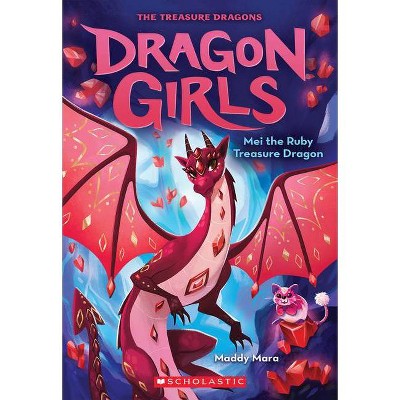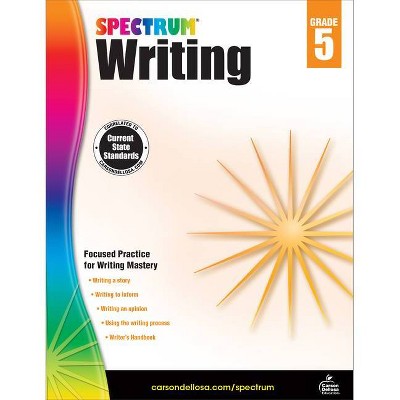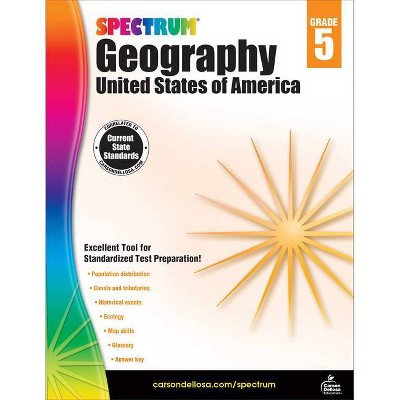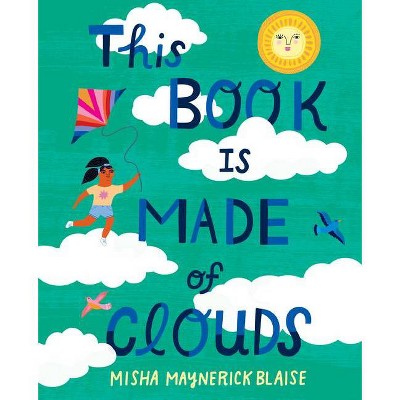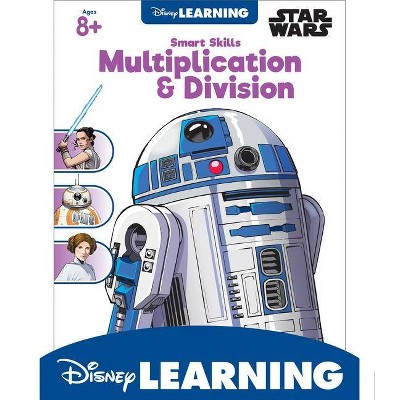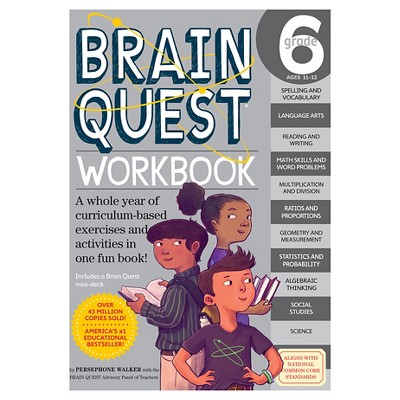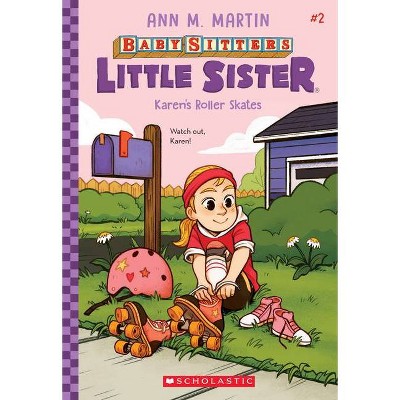Gloria's Way - (Puffin Chapters) by Ann Cameron & Lis Toft (Paperback)
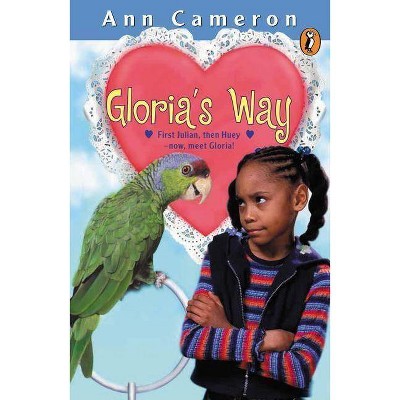
Similar Products
Products of same category from the store
AllProduct info
<p/><br></br><p><b> About the Book </b></p></br></br>Gloria is best friends with Julian and his little brother, Huey. When classmate Latisha tricks Gloria, Julian, and Huey, they don't know it until it's too late! Also, Gloria must contend with the parrot that ruins her mother's Valentine and Huey's dog which has an obsession with squirrels. Illustrations.<p/><br></br><p><b> Book Synopsis </b></p></br></br>Gloria is best friends with Julian and his little brother Huey, and she has as much to say as they do. There's the parrot that ruins the Valentine for her mother; Huey's dog, who needs to be cured of his squirrel obsession; and what happens when classmate Latisha tricks Gloria, Julian, and Huey-but they don't know until it's too late! Fans of Ann Cameron's best-selling chapter books about Julian and Huey will love Gloria, too. <p/> This is where peace begins-in an ordinary neighborhood where children learn to address their problems with the help of wise adults who offer them good counsel while respecting the children enough to let them work out their own solutions . . . . Sparkles with humor. (<i>The Horn Book</i>)<p/><br></br><p><b> About the Author </b></p></br></br>I was born and grew up in a small town of about seven thousand people, Rice Lake, Wisconsin. My favorite person was my grandfather, Oscar Lofgren, who taught me Swedish and told me stories. He was a blacksmith and on our land he had a shop where he made things for us out of iron. I loved watching him hammer the hot iron on the anvil and watching the sparks fly. He died when I was six. I think because of my relationship with him, I grew up to be a friendly and warm person.<p>My dad was a small-town lawyer who handled all kinds of cases--sometimes cases of clients who didn't have any money: one family paid him in eggs that they delivered to his office every Saturday morning. My mother had been a high school English teacher before she married and admired writers tremendously. She used to say thought writing was 'the most difficult job in the world.' When I was in third grade, I decided I wanted to be a writer. I don't think the idea that it was 'the most difficult job in the world' was a help to me!</p><p>From the time I was seven till I was ten, my inseparable playmate was a boy named Bradley whom I admired tremendously. My memories of that period of my life inform my stories about Julian. So does my relationship with my father, who was a showman like Julian's dad.</p><p>In the summers, my family lived at our cottage on a lake. My dad taught me how to swim, fish, water ski, hunt and run a motorboat. He bought me a horse--a wonderful pinto pony named Paint--and taught me how to ride. One of the things I liked to do best on a hot summer day was to ride Paint bareback into the lake. He'd get in deep enough so he had to swim, and I'd start floating off his back.</p><p>By the time I was in high school, I was very interested in lots of things--skiing, acting, politics, science. I graduated valedictorian of my high school class and went East to the big, scary, and exhilarating world of Harvard College, where I got my B.A. with Honors in 1965. At Harvard, I studied writing with Robert Lowell and R.S. Fitzgerald. Both of them gave me confidence that I could indeed be a writer. From Lowell I learned how to go deeper into my imagination to visualize scenes and people before I wrote. From Fitzgerald, I learned to write as sparely as possible. When you use exactly the right words, and not a single unnecessary word, your writing has maximum impact.</p><p>At Lowell's recommendation, after college I moved to New York to work in publishing. I became an assistant editor in the adult trade department at Harcourt, Brace. I read lots of manuscripts submitted to the publishing house for consideration. I also read the editors' letters of advice that accompanied novels sent back to authors for revision. I hoped--not only hoped, really believed that by reading all these letters I'd learn to avoid all the mistakes the authors had made. No such luck! Occasionally I've written books in which the first draft was the final one and hardly a word was changed--<b>The Stories Julian Tells</b>, <b>More Stories Julian Tells</b>, and <b>The Most Beautiful Place in the World</b> were like that--but most often a book goes through three or more drafts.</p><p>I entered the Iowa Writers' Workshop at the University of Iowa, where I got an M.F.A. in 1972. I taught a literature course at Iowa and also was the first reader of all the manuscripts submitted to the Workshop by student applicants. I started two more adult novels and abandoned them when I couldn't see how to organize them. Then I started writing for children. My third try, <b>The Seed</b>, the story of a little seed that is afraid to grow, was published in 1974. Like most writers, I get lots of ideas but don't feel a story irresistibly bubbling up inside of me. I have to push and pull at my mind to make my initial idea fill out with details and meaning. The most important rule for writing is 'apply seat of pants to bottom of chair.' I don't really like to do this! Starting a new book is terribly hard. By the end, I've forgotten how hard the beginning was, am proud of myself and ready to tackle the next book right away. Then, I get involved in other things and much time passes . . .</p><p>My first book about Julian was inspired by stories a friend from South Africa, Julian DeWette, told me about his childhood. Julian was then writing an adult novel about his childhood. He was most interested in writing about the painful parts of the story--about living with apartheid, the three-way system of segregation by race--Whites, Blacks, and Coloreds--that, for forty years, forcibly kept people apart in South Africa. When I used Julian's stories, I moved the characters out of South Africa and set the stories in an imaginary country without racism--a country that represents the world we could have, someday.</p><p>After Iowa, I lived in Berkeley, California for a year and then returned to New York. In 1983, I moved to Guatemala. I had always wanted to immerse myself in another culture. To live in two (or more) countries makes one's life bigger, I think. The more we know, the better we can choose ways of living that suit us and make us happy.</p><p>In 1989, I met Bill Cherry, who was then working for the United States Congress in Washington, D.C., helping develop laws on agriculture. In 1990 we got married (in one short ceremony I got a husband; two grown daughters, Angela and Cristi; and a granddaughter, Jessica). Bill retired, and now we both live in Guatemala. We have a small house with a view of three volcanoes and a waterfall, and flowers growing over the roof. There's a lemon tree in the back yard, and almost every day we have fresh lemonade from the tree. (My book <b>The Most Beautiful Place in the World</b> is based on stories of Guatemalan children.</p><p>In 1993, the mayor and city council of Panajachel named me the unpaid supervisor of the municipal library--which had limited open hours, no budget for improvements and almost no children's books. Now, continuing donations from U.S. individuals, schools, libraries and civic organizations enable us to keep the library open six days a week--and buy new children's books in Spanish. Now the library is packed with children learning. One of the reasons I want to work harder and write more is to have more money for it. Back of pants, get on your way to that restaurant and sit down!</p><p>Ann Cameron was a guest at Yaddo in 1968 and a MacDowell Colony Fellow in 1968 and 1986. She received a grant from the National Endowment for the Arts in 1974.</p><p><b>The Stories Julian Tells</b> received the 1981 Irma Simonton Black Award of the Bank Street College of Education. It was also named a Notable Children's Trade Book in the Field of Social Studies by a joint committee of the National Council on the Social Studies and the Children's Book Council. The American Library Association named it a Notable Book of 1981. <b>More Stories Julian Tells</b> was also named an ALA Notable Book.</p><p><b>The Most Beautiful Place in the World</b> was a joint winner of the 1989 Jane Addams Children's Book Award and received a 1988 Child Study Children's Book Award, given by the Child Study Children's Book Committee at Bank Street College of Education. It was also selected as a Notable Children's Trade Book in the Field of Social Studies.</p><p>Selected Works: <br> <b>The Stories Julian Tells</b>, 1981; <b>More Stories Julian Tells</b>, 1986; <b>Julian's Glorious Summer</b>, 1987; <b>Julian, Secret Agent</b>, 1988; <b>The Most Beautiful Place in the World</b>, 1988; <b>Julian, Dream Doctor</b>, 1990; <b>The Secret Huey Tells</b>, 1995.</p>
Price History
Price Archive shows prices from various stores, lets you see history and find the cheapest. There is no actual sale on the website. For all support, inquiry and suggestion messages communication@pricearchive.us
